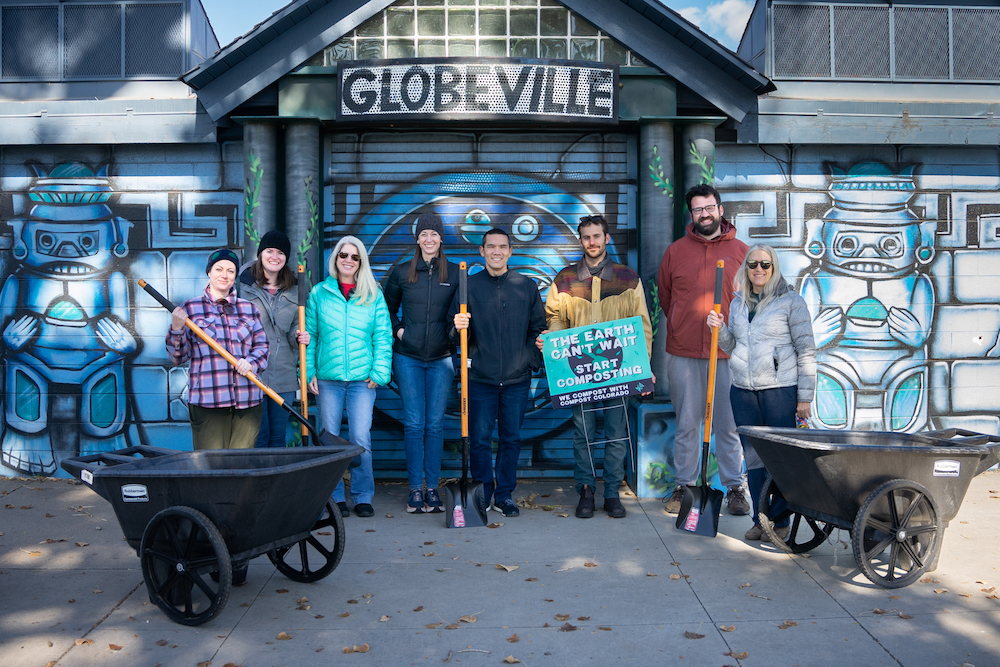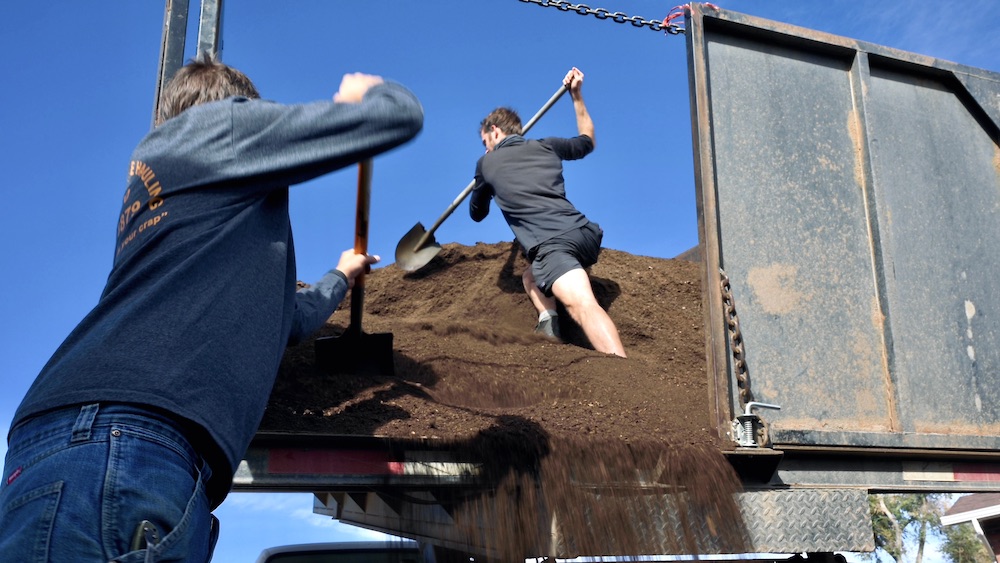By Gannon Rothman
Composting in Denver had been a challenge for Vann Fussell. He was living out of a garage in Globeville thinking of ways to bring better access to neighborhoods when it came to waste management.

Fussell started Compost Colorado (CoCo) in 2018, in part because he knew many people weren’t paying much attention to what they threw out. Now the company is helping to fill in gaps left by Denver’s own composting program, which rolled out in July this year, called Denver Composts.
Composting is the process of recycling organic material such as food waste and animal products back into the soil, giving microbes some nutrient fuel and keeping waste out of landfills.
CoCo keeps over 50,000 pounds of trash out of landfills each week. Fussell said since he started the company, service requests have increased, even within the last few months, but there’s still work to be done.
Last November, Denver residents overwhelmingly approved Ballot Initiative 306, or Waste No More, an ordinance that requires apartment complexes, restaurants, businesses and office buildings in Denver to offer recycling and compost services. It was something that Fussell said the city has been lagging behind on for some time.
“There was a total lack of composting available before we started … I felt compelled to do something to help support sustainability and help our community be a little bit more green when it comes to their waste,” Fussell said.

“Composting is one of the easiest and most effective ways to fight climate change,” Fussell continued, “because you’re preventing waste from going to a landfill where it would just release methane gas and not add any value to the soil.”
CoCo’s most affordable plan starts at $15 per month for residential drop-off. Compost for household and commercial members is collected each week. Account members include restaurants, schools, apartment complexes and other businesses like coffee shops in Denver and throughout the metro area.
CoCo also has a compost delivery service available for purchase on its website and offers composting for events such as weddings, dinner parties or concerts.
CoCo currently has 10 employees working at its facility at 48th Avenue and Washington Street, and some 2,000 members. Their team has collaborated with EcoCycle, based in Boulder, to help roll out more zero-waste and all-inclusive resource management policies to support the community. The company is also a member of Good Business Colorado, Recycle Colorado and the Colorado Composting Council.
Most of the organic waste that CoCo takes in goes to A1 Organics in Keenesburg to undergo the composting process. They then sell the compost that will eventually go back into the soil.
CoCo’s facility is based in the Globeville neighborhood of North Denver, an area that faces poor air quality, dire soil health and water pollution. The company collaborates with Globeville First on tree plantings every year, in which they’ve helped plant around 200 trees so far.
Last year, CoCo received a $24,000 beautification grant that was used to plant trees, establish a pocket park at 44th and Pearl, and help spread compost to about 75 homes in Globeville.
The Colorado Department of Public Health and Environment awarded the company a $227,000 grant last year that went toward helping to build CoCo’s composting facility, though it’s not operational yet.
Denver’s zoning office does not have an effective permitting pathway for small-scale community compost services, which is why the Waste No More Task Force, which Fussell volunteers on, has recommended the city develop a more streamlined approach, Fussell said.
Because of the zoning issues, Fussell said most of the organic waste they collect must be sent 50 miles away to A1 Organics, adding unnecessary emissions into the atmosphere. This also removes the finished compost products from local communities in Globeville that then can’t easily access it for their own soil.
“Developing the urban tree canopy is vital to reducing the heat island effects in communities like Globeville,” Fussell said. “We need to keep putting political pressure on the planning office to develop a bypass or a new zoning process for organizations and properties to site small-scale community composting operations so that we (Denver) have a more distributed and resilient paradigm for managing our compost resources.”

Be the first to comment